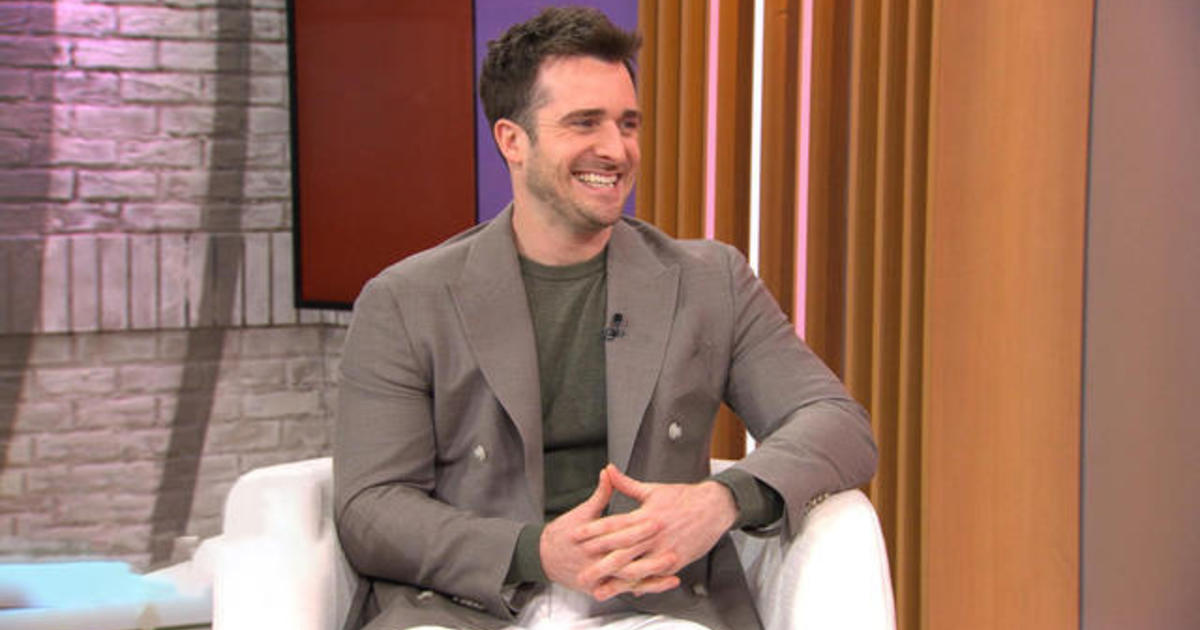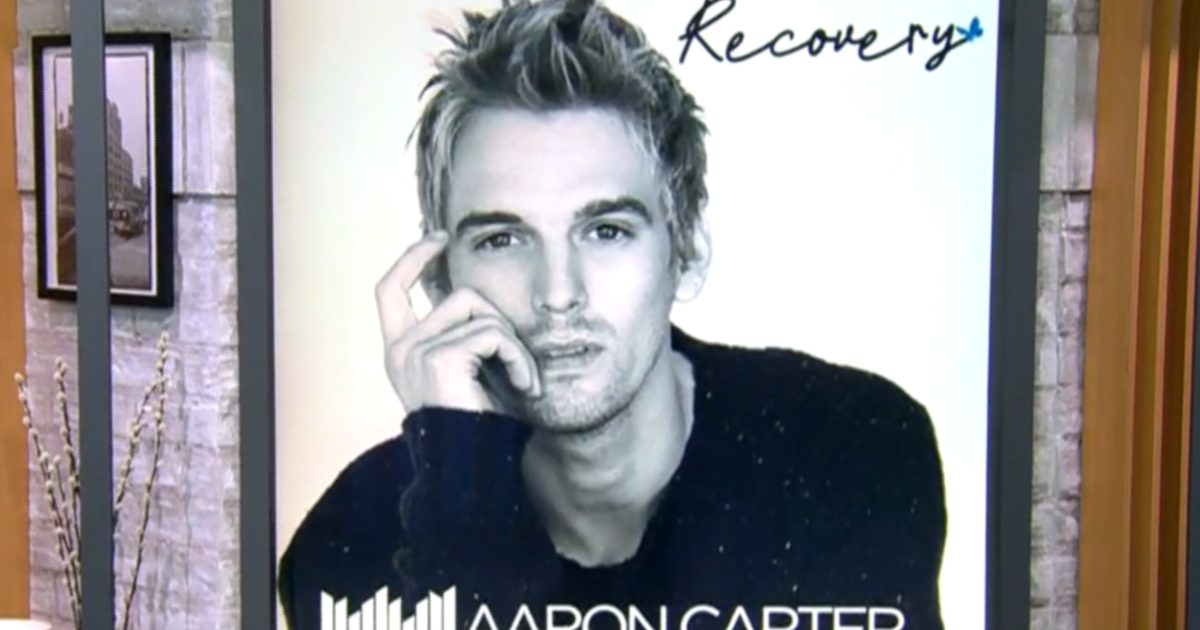How scary music makes movies scarier
Imagine the 1973 horror movie "The Exorcist" without its ominous score. Would "Psycho" be the same without Bernard Herrmann's music? It's no surprise that a good scare and a good score go hand-in-hand.
Michelle DiBucci, a horror film composer and professor of music theory at the Juilliard School, credits the pitch of the music with having A FRIGHTENING effect: "In 'Psycho,' it's the high that scares us – it's in the stratosphere register of the violins."
Play excerpt: Murder music from "Psycho"
DiBucci agreed to reveal to correspondent David Pogue some of the tool composers use to frighten us, like notes that clash, or low, droning notes.
"Like, where's that note going? What's it gonna do?" she said.
"It's literally suspense," said Pogue.
"So, sometimes very little does a lot," DiBucci said.
We know it does, but exactly how … and why?
Anthony Lacagnina, a neuroscientist at the Friedman Brain Institute at Mount Sinai Hospital in New York City, said, "We don't like when frequencies clash, like a scream."
He said that sometimes spooky music works by resembling sounds that trigger our fight-or-flight response ... footsteps coming up from behind you?
"We know that the brain is responding to that by activating those brain areas that are going to be involved in protecting you," Lacagnina said.
Pogues asked, "Something that is high, dissonant and screeching might suggest something in our unconscious that is screaming, and that of course makes us panicky?"
"We want to attend to things, for example, like a baby crying, a sound rustling behind you, that would be very important thing to attend to if it was a predator," Lacagnina said.
Even the instruments you use (or misuse, like a prepared piano) affect the creepiness quotient.
Pogue asked, "Why is that upsetting me? It sounds like this is something that's going to hurt you?"
"Oh, but no, it's fabulous. Come on!"
Lacagnina said, "Anything that is abrupt [like a jolting chord] is going to certainly cause an emotional response in some way."
It's easy to understand why a loud crashing noise can startle you in a movie. But quiet can also be scary, even when it's a lullaby, like the lullaby Mia Farrow sings to her infant in "Rosemary's Baby."
"Creepy lullaby! No one's going to be singing that to their baby!" DiBucci laughed.
But maybe the most surprising thing Pogue learned from DiBucci is that over a hundred movies all use the exact same tune, one that is almost a thousand years old: "The Mass for the Dead, or the Funeral Mass, would have a section that used a sequence called 'Dies Irae.' Dies irae, dies illa / Day of wrath, day of impending doom. And this was the judgment day. This was a scary concept back in the Middle Ages.
"It's a cascading musical idea; it falls down. And because it's associated with death, it started to be used by composers outside of its reference to the mass."
You hear that "Dies Irae" melody at the beginning of "The Shining," in "Friday the 13th," in "Sweeney Todd," and dozens of other movies.
DiBucci said, "Over a lifetime of movie watching, the brain is gonna know when those collections of notes come in, it does not mean something happy is about to happen!"
At Carnegie Hall, Pogue caught up with a current maestro of horror, composer Michael Abels. He's written two of the scariest scores of recent years: "Get Out" and "Us," both directed by Jordan Peele.
"I still remember sitting in the theater for ['Get Out'], and the camera is showing sunlit woods passing by. That's not scary!" Pogue laughed. "You put happy music to that and it's a TV commercial, but you come in with this Swahili chanting, and it is a freakout."
Pogue said, "I notice that in a lot of horror movies there is choral singing in another language."
Abels said, "It's all about the unknown. When you can't understand what it's saying, then that pulls into your own fears of making things even worse than they might really be, right?
"So, Jordan [Peele] really loves having voices in the scores. And so, there are even more voices in 'Us.'"
"Yeah, but in 'Us,' it's, like, children!" said Pogue
"Yes! There's Jordan Peele wanting to ruin things for you! He said, 'So, let's get children's voices. That'll be really scary!'"
Of all the notes in the world that just sound wrong together, the tritone may be the most famous. It's two notes, six piano keys apart. During the Middle Ages it came to be called diabolus in musica, the "devil in music."
You'll hear the tritone in classical music, as in the violin in the opening of Camille Saint-Saëns' "Danse Macabre":
Play sample: "Dance Macabre"
… and also the opening notes of "Get Out."
"It's like, Here's a tritone!" laughed Pogue. "What are you doing?"
"Well, I guess I'm being really obvious, when you set it up like that," Abels replied. "Thanks a lot!
"These are all the colors of darkness and fear and anger and terror, and these colors can be mixed with the colors of joy and happiness and contentment and sincerity. And by mixing them, you can create the exact balance of these two things. And so, the tritone is an important interval – not just in horror, but in music that's even just a little bit tense."
And it's those unsettling sounds that scientists like Anthony Lacagnina are still trying to understand.
Pogue asked, "Is there any aspect of music's effect on us that science hasn't been able to nail down?"
"We can understand music in terms of how it's processed in the brain," Lacagnina replied. "But, creating music, we do not understand that very well."
And that, to composer Michael Abels, is what makes horror music so brilliantly thrilling.
Abels said, "It's this really magic power. I kind of love that we don't know. The magic part of it just lights me up."
EXTRA: Listen to a podcast of David Pogue talking with Michelle DiBucci about musical composition
For more info:
- michaelabels.com
- Michelle DiBucci, Juilliard School, New York City
- Anthony Lacagnina, Friedman Brain Institute, Icahn School of Medicine at Mount Sinai, New York City
Story produced by Gabriel Falcon.



